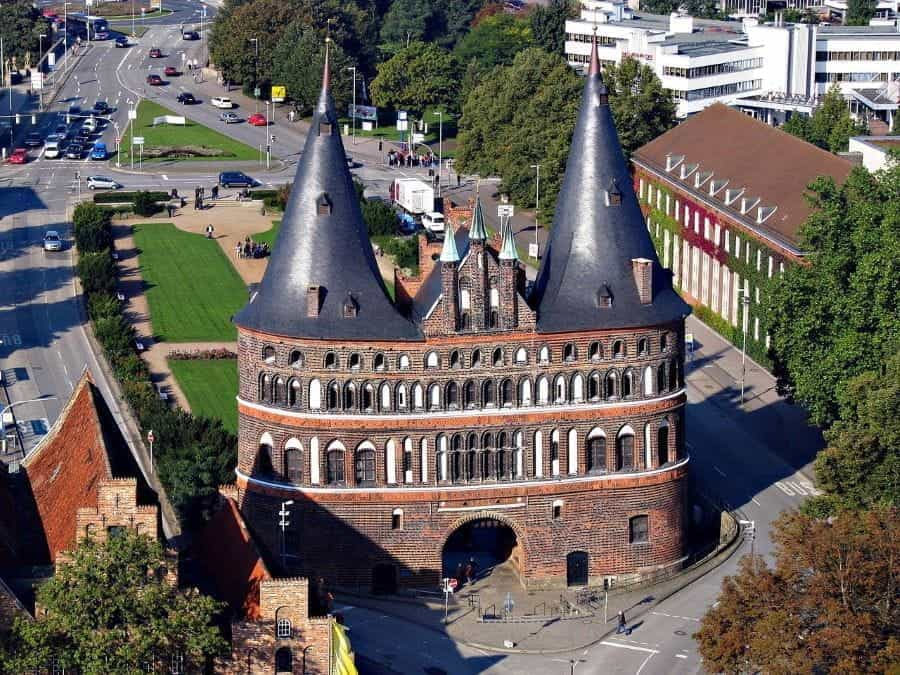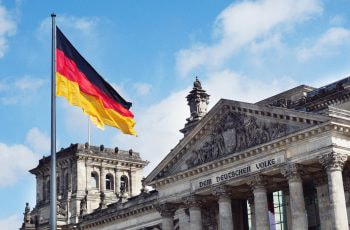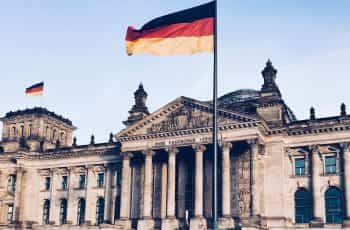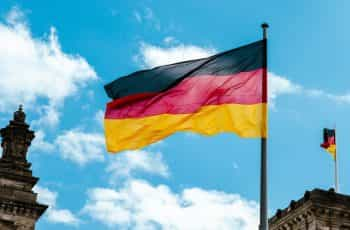German Online Casino Advertising Rules
Online casino operators in the German state of Schleswig-Holstein have agreed to new advertising rules that limit them to 17,000 minutes of TV advertising per month. The TV in question is the country’s national free-to-air channels and the agreement was made following lengthy talks between the German Association of Telecommunications and Media (DVTM) and governmental bodies such as the Ministry of the Interior and Zentralband der deutschen Werbewirtschaft, the federal advertising body.

Plans to limit advertising of online casino from Schleswig-Holstein to 17,000 minutes have been praised as highly logical and transparent by those who negotiated them. Other states have been critical of the advertising of Schleswig-Holstein’s licensees. ©gunthersimmermacher/Pixabay
The system of self-regulation seeks to level the playing field between all of the operators in the state of Schleswig-Holstein who are DVTM members (8 of the 11 licensees in the state). The members hope that this will ensure equal exposure by setting a total limit for these operators of around 283 hours of advertising each month.
Τhe decision about the number of minutes that would be assigned for gambling advertising was based on the Königstein Key. This system is what is used to determine which resources are allocated to each state, as well as the quantities of these.
The system works by measuring and recording the tax revenue generated from a specific industry and a specific population within the country. If online gambling advertising is considered, Schleswig-Holstein is currently the only state where this industry is legally sanctioned. Therefore, the amount of time spent advertising the practice in this state should at least correspond to the national average.
The DVTM was quick to declare that there would be no room for exploiting this system of self-regulation. The body claims to keep track of all of the advertising from its members via independent third parties who do not have a stake in the findings. The DVTM has emphasized its commitment to ensuring that any overstepping of the 17,000-minute cap would be met with swift action.
Reception to the Agreement
Those involved in negotiating the deal have praised it as a logical model that will be difficult for individuals to exploit due to the readily available data that is being recorded. Nielsen Media Research will be collecting this data and will, therefore, be in a great position to spot any operators that are exploiting the system.
Additionally, by recording the advertising data from the state, it will be possible for the system to be highly transparent and traceable. This will not only help to promote fairness in the market between all of the operators but will also help to improve public faith in the system.
It is also true that the overall advertising output of online advertisers in Schleswig-Holstein has dropped since 2019 using a similar system within the state itself. Also, and perhaps a very important indicator of the efficacy of the system, there has been no overall increase in the amount of TV advertising in the state during the lockdown caused by the COVID-19 pandemic in Europe.
Historically, there have been disputes between other German states and Schleswig-Holstein over the advertising activities of the licensed operators in the former. For example, the media and advertising watchdog in the state of Saarland hit out against these advertising practices in September of 2019. In this case, the licensees in the state were accused of ignoring advertising restrictions and of endangering those struggling with gambling addiction.
Here, the criticism stemmed from the operator’s use of national TV channels to promote their services despite only being legal in Schleswig-Holstein.
In the wake of these accusations, the head of the watchdog called upon regulators in the state to limit the advertising of its licensees. Schleswig-Holstein was accused of failing to do so, so in June of 2020, the watchdog prohibited two licensed operators from the state from advertising any of their services within Saarland.
In the wake of this ban, the watchdog aired its belief that the amount of gambling advertising should be proportionally related to the regions in which it is legal. This means that it should not be present in large amounts in regions where it is prohibited.
The head of the DVTM has argued against recent comments that have suggested that gambling advertising is on the rise in the country. The DVTM believes that figures relating to the incidence of gambling advertising are confounded with competing industries such as physical gambling machines. The association fights this notion but has admitted that this has become the normal stance taken by legislators in Germany.
The DVTM has suggested that, instead of infighting and subtle (and less subtle) jabs between different organizations within different states, those working in the industry should instead be looking for pragmatic and logical solutions to these problems. The DVTM has also suggested that such a system for advertising could serve as a useful model should a new State Treaty on Gambling be implemented that legalizes online casino nationwide.
Other Recent Developments in Germany
There have been other developments in a different German state relating to some suspicious financial reporting about the privatization of the casino operator in Nordrhein-Westfalen, Westdeutsche Spielbanken (WestSpiel). The accusations have been brought forward to the state’s parliament by the Social Democratic Party who suspect some foul play with the operator’s accounts.
As a result of these suspicions, the Social Democratic Party has asked for an unconventional sitting of the Budget and Finance Committee of the Parliament. This will allow the party a platform to demand answers from the state’s governing party.
The Social Democratic Party suspects that the joint government in the state (made up of the Christian Democratic Union and the Free Democratic Party) is attempting to sell off the casino operator at any cost in order to privatize it. The accusers have, therefore, suggested that the government is intentionally skewing the financial data to appeal more to potential investors.
This privatization has been going on since 2018 when it was decided that the operator should move out of the hands and management of the state-owned bank NRW.Bank. The operator, at present, manages six casinos, of which, four are located within the state of Nordrhein-Westfalen. The two additional casinos are situated within the city of Bremen.
Some of the specific figures that the Social Democratic Party have drawn into question are those that were initially reported by the business in its 2019 sustainability report. Here, it was claimed that the operator generated €136.8 million in gross revenue for that year. This figure was a significant, 27% rise on the same sum that was reported for the previous year.
There is, at present, an unstable situation in the country with regard to its gambling legislation. In March of 2020, it seemed all but certain that a new piece of legislation would be implemented that would legalize all forms of online gambling nationwide, with some restrictions (such as limitations on advertising). These measures were agreed by legislators from the different states that make up the country.
However, these plans have been substantially delayed by a slew of legal challenges that prevented the implementation of the new market for sportsbook operators. A temporary set of regulations is now in place to allow all of the different groups involved to come to a new agreement with regards to these regulations.



